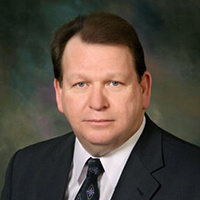 Roseville Criminal Lawyers, Michigan
Roseville Criminal Lawyers, Michigan
Sponsored Law Firm
-
 x
x

Click For More Info:
-
Dodson Fowler Williams & Nesi, PLC
18538 Mack Avenue Grosse Pointe, MI 48236» view mapCriminal Defense Law Practicing With Integrity
We have over 20 years of combined legal experience, we will zealously and happily represent any client who needs our assistance.
800-935-7840
Sponsored Lawyers
1-10 of 21 matches
Criminal, Divorce & Family Law, Bankruptcy & Debt, Estate, Lawsuit & Dispute
The attorneys of Maynard Law Associates, PLLC are skilled at walking our clients through each step of the complicated legal process. If you are confronted with criminal charges, or even being investigated, the time to have an attorney is NOW. We have 14 years experience handling criminal matters, from misdemeanors to federal felony charges, and everything inbetween. When you are faced with criminal charges, you need agressive representation to protect your rights. We will fight for you to protect your rights and your record. Call us today! If you are contemplating divorce proceedings, already facing a divorce action, fighting for custody or battling child and/or spousal support issues, you need a skilled legal team to fight for you and advise you. Our team has the right experience and we stand ready to help you and your family. Call us today!
(more)Criminal, Car Accident, Personal Injury, Divorce & Family Law, Business
Arthur (Art) A. Garton handles all matters of complex criminal law, family law, personal injury and business/civil litigation. He is one of two Macomb County attorneys who completed the National Criminal Defense College Trial Practice Institute. He regularly attends the Defense of Drunk Driving Seminars sponsored by the National Association of Criminal Defense Lawyers. He has also attended national seminars on Defending Allegations of Sexual Abuse.Mr. Garton is a graduate of Detroit College of Law and has practiced in the State of Michigan for over twenty years. He received his B.A. from the American International College in 1974 and his M.A. from Central Michigan University in 1978. He also served in the United States Air Force from 1971 to 1975.Mr. Garton is a member of the State Bar of Michigan where he has served on the Character and Fitness Committee. He is currently president of the Macomb County Bar Association. He is also a member of the National Association of Criminal Defense Lawyers, the Association of Trial Lawyers and the Michigan Trial Lawyers Association.Mr. Garton received recognition as a Super Lawyer in 2007 and 2008. He is well-respected and recognized among his peers as an outstanding attorney.
(more)


 Nathan A. Dodson Grosse Pointe, MI
Nathan A. Dodson Grosse Pointe, MI Practice AreasExpertise
Practice AreasExpertise


